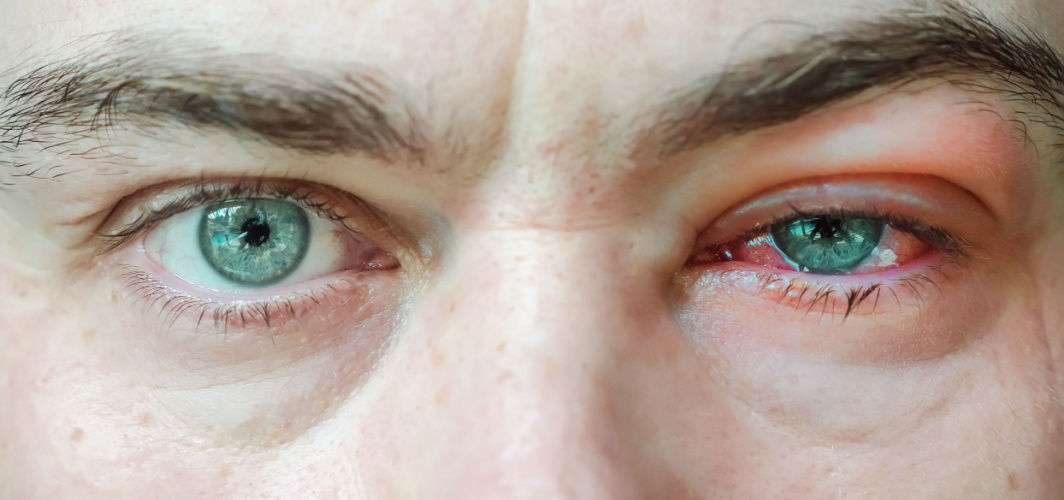General Health
The Hidden Dangers of Untreated UTIs
5 min read
By Apollo 24|7, Reviewed by Dr. Srividya Kalavagunta, Verified by Dr. Ima Rashid, Published on - 05 July 2024
Share this article
0
0 like
.jpg?tr=q-80)
A urinary tract infection (UTI) is an infection of the bladder and kidneys in the urinary tract. Mainly, bacteria cause UTIs, but in some rare cases, fungi and viruses can also cause UTIs. Bacteria such as Escherichia coli (E. coli) enter the urinary tract through the urethra and multiply in the bladder.
The urinary tract comprises kidneys, ureters, bladder, and urethra. Most UTIs only involve the urethra and bladder, but they can also affect the ureters and kidneys. However, it happens in severe cases where symptoms are neglected, and the infection is left untreated. Let us understand the risk factors for complications of UTIs, the impact of untreated UTIs, and how to prevent these complications.
Risk Factors for Developing UTI Complications
UTIs are common and easily treatable, but there are certain factors that increase the risk of developing UTI complications. Those risk factors are:
- Weakened Immune System: People with weak immune systems, which can be due to medical conditions like HIV/AIDS, diabetes,Chronic kidney disease; treatments such as chemotherapy ; and elderly are more susceptible to UTI complications.
- Delayed Treatment: Symptoms of UTIs often go unnoticed because people think they'll get better on their own, which leads to delaying treatment, making the condition even worse and leading to complications like infection spreading to kidneys.
- Anatomical Abnormalities in the Urinary System: Problems like kidney stones (hard deposits of minerals and salts in the kidneys), polycystic kidney disease (cysts in the kidneys), and ectopic kidney (kidney present in an abnormal position), etc., can increase the chances of infection and complications.
- Frequent Sexual Intercourse: Engaging in frequent sexual activity increases the chance of getting UTIs, especially if basic hygiene precautions are not followed before and after the sexual activity.
- Pregnancy: Pregnant women are more vulnerable to UTIs and their complications, which can affect both maternal and fetal health.
- Catheter Use: Long-term use of urinary catheters can allow bacteria to enter the urinary tract, hence increasing the risk of UTI complications.
Additionally, certain behaviors like not urinating after sex or using certain contraceptives or spermicide jellies can contribute to a higher risk of complications.
Consequences of Untreated UTIs
UTI if untreated can lead to severe complications and even hospitalization in some cases. Letting your doctor know you have UTI symptoms is always a good idea. Symptoms like painful urination, frequent urges to urinate, and discomfort in the lower abdomen should not be taken lightly.
Here are some consequences of untreated UTIs:
- Kidney Infections (Pyelonephritis): If UTI is left untreated, it can spread to the kidneys, leading to a more severe infection known as pyelonephritis. The patient may have permanent kidney damage, reduced kidney function, and even kidney failure.
- Sepsis: Sepsis in the urinary tract, called urosepsis, is a severe condition when a UTI spreads to the bloodstream, causing a systemic inflammatory response that can lead to organ dysfunction or failure. Symptoms of sepsis include fever, chills, rapid heartbeat, and confusion.
- Stricture (narrowing of the urethra): Recurrent UTIs can lead to scarring and narrowing of the urethra, a condition called stricture. The patient faces difficulty in urination and may require surgical intervention to correct it.
- Pregnancy Complications: Untreated UTIs during pregnancy can lead to severe problems like premature birth, low birth weight, etc.
- Bladder Damage: Chronic UTIs can damage the bladder, causing decreased bladder elasticity and function. The patient will have frequent urination problems.
- Prostatitis: Untreated UTIs can lead to prostatitis (infection in the prostate gland) in men. The patient may suffer from pelvic pain, difficulty urinating, and flu-like symptoms.
- Development of Antibiotic Resistance: If the patient does not complete the antibiotic course prescribed by the doctor, they may develop antibiotic-resistant bacteria. Next time they get a urine infection, it becomes challenging to treat them and can limit the effectiveness of standard antibiotic therapies.
Urosepsis: Life-Threatening Complication of UTI
Urosepsis is a severe condition when a urinary tract infection (UTI) spreads to the bloodstream, causing a systemic inflammatory response that can lead to organ dysfunction or failure. It happens when a urinary tract infection (UTI) goes untreated and spreads to your kidneys. Urosepsis can be a medical emergency.
Symptoms of Urosepsis
Urosepsis is a serious condition that should not be taken lightly. Symptoms of urosepsis may include:
- High fever
- chills
- Rapid heartbeat
- Difficulty breathing
- Confusion or altered mental state
- Low blood pressure
If you experience any of these symptoms, especially if you have a history of UTIs or other urinary problems, it's important to consult a doctor immediately. Urosepsis can be life-threatening if left untreated.
Prevention and Treatment of Urosepsis
Urosepsis can be prevented by following these simple measures:
- Ensure UTIs are treated with antibiotics to prevent the infection from spreading to the bloodstream and causing urosepsis.
- Maintain good hygiene habits, like proper handwashing and genital hygiene, to reduce the risk of bacterial infections that can lead to UTIs and urosepsis.
- Avoid the unnecessary use of urinary catheters. Catheters can introduce bacteria into the urinary tract, increasing the risk of UTIs and urosepsis.
Treatment options for urosepsis are:
- Antibiotics: Doctors prescribe antibiotics to kill the bacteria causing the infection. Doctors initially prescribe broad-spectrum antibiotics until they identify which specific bacteria has caused the issue. If the patient is hospitalized, intravenous (IV) antibiotics are given.
- Surgical Intervention: In some cases, the patient may need surgical intervention to remove obstructions in the urinary tract, such as kidney stones or strictures (urethral narrowing) that could have caused urosepsis.
- Supportive Care: Patients with urosepsis may need supportive care like oxygen therapy, monitoring of vital signs, and management of complications such as acute kidney injury or respiratory failure.
Preventing UTI Complications
Follow these simple yet effective tips to prevent complications of urinary tract infection (UTI):
- Drink plenty of water to flush out bacteria from the urinary tract and reduce the risk of UTIs.
- Avoid holding urine for long periods, as this can help bacteria multiply in the bladder and increase the chance of getting UTIs.
- Ensure you empty your bladder completely while urinating to prevent the growth of bacteria.
- Avoid using spermicidal jelly and other irritant products in the genital area.
Conclusion
UTIs are common and easily treatable, but certain factors increase the risk of developing UTI complications, such as a weakened immune system, delayed treatment, frequent sexual intercourse, catheter use, etc.. You may face consequences like kidney infections (pyelonephritis), urosepsis, narrowing of the urethra, pregnancy complications, bladder damage and other issues. If you experience symptoms like high fever, chills, rapid heartbeat, and difficulty breathing, especially if you have a history of UTIs or other urinary problems, it's important to consult a doctor immediately.
Services
General Health
Consult Top Urologists
View AllLeave Comment
Services
Recommended for you

General Health
International Men's Day: 7 Health Issues Commonly Detected In Men
Men aged above 50 years need to particularly adopt preventive measures for overall fitness and reduce the impact of common issues like diabetes and heart disease.

General Health
4 Warning Signs of Conjunctivitis: Know When To Consult A Doctor
Learn about the 4 concerning signs of conjunctivitis, including redness, itching, discharge, and more. Stay informed and protect your eye from this contagious infection.

General Health
How To Make Your Gym Sessions Effective? Quit These 5 Bad Habits Now
If you work out every day and are still way too far from achieving your fitness goals, then you must be doing something wrong. Certain habits can make your exercise sessions less productive than you expect.
Subscribe
Sign up for our free Health Library Daily Newsletter
Get doctor-approved health tips, news, and more.
Visual Stories

The Best Exercises for Controlling Blood Sugar Levels
Tap to continue exploring
Recommended for you

General Health
International Men's Day: 7 Health Issues Commonly Detected In Men
Men aged above 50 years need to particularly adopt preventive measures for overall fitness and reduce the impact of common issues like diabetes and heart disease.

General Health
4 Warning Signs of Conjunctivitis: Know When To Consult A Doctor
Learn about the 4 concerning signs of conjunctivitis, including redness, itching, discharge, and more. Stay informed and protect your eye from this contagious infection.

General Health
How To Make Your Gym Sessions Effective? Quit These 5 Bad Habits Now
If you work out every day and are still way too far from achieving your fitness goals, then you must be doing something wrong. Certain habits can make your exercise sessions less productive than you expect.

